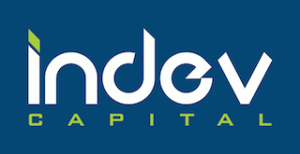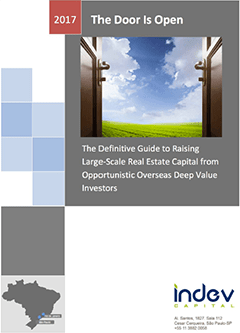
Current Investment Opportunities – 2020
2020 is a time of significant economic dislocation, transition, and distress on a global and sector basis. In the markets and sectors that InDev Capital serves, this creates distress for many current asset owners and unique opportunities for investors.
As a merchant bank and a co-investor in all that we do, InDev Capital is very selective with regards to the investment opportunities that we present and on which we choose to focus. Our efforts are targeted towards real asset investment opportunities that our analysis has determined have the highest risk-adjusted returns based on what is happening on the ground in their respective markets.
Our filter is based on five principals: one, in both good and bad times we start with downside protection / proven demand; two, the “buy-in” or cost basis of the investment opportunity; three, local co investment capital and on-the-ground management expertise alignment; four, macroeconomic forces aligned with strategy; and five, scale and opportunistic returns – north of US$20M++ profit opportunities.
Importantly, based on Covid-19 and the significant effect of national shutdowns, these strategies are under constant evaluation on a real time basis. We expect to stress test these strategies over the next 60 to 90 days.
Real Estate Investment Opportunities
Lot Subdivision Credit (Brazil)
In Brazil, bank financing does not exist for the purchase of plots in lot subdivisions, so these purchases are financed for consumers by the lot developers themselves. The lot development sector is highly fragmented with many regional companies that are not well capitalized and thus seek to anticipate their receivables.
There is limited equity available to purchase lot subdivision receivables portfolios in Brazil due to the complexity of the operation. However, with the right portfolio manager, significant cap rate compression is possible. InDev has partnered with Brazil’s leading firm for lot subdivision portfolio management to execute this strategy. The focus of the strategy is the purchase of low and middle income lot subdivision receivables portfolios throughout Brazil at discounted values.
InDev Capital has multiple portfolios of lot receivables credit in our pipeline that are under evaluation and for which we are closely monitoring the default situation. In addition, we evaluate the debt capital markets’ pricing and liquidity. Our focus is to understand the stability of the portfolio, default ratio and trends, and also determine how an exit would be priced and the spread upon which we could acquire the portfolios in the current market conditions.
Cash Yield: The investment strategy consists in purchasing portfolios of low and middle income loteamentos throughout Brazil. The focus of the strategy is the acquisition of portfolios at discounted values. Loteamento portfolios in Brazil are financed with interest rates of 12% + IPCA (Brazilian CPI). The cash yield for discounted portfolios will vary from 14% to 18% plus inflation. The variation will depend on the quality of the portfolio. The main points of analysis that define a quality portfolio are: (a) good sales performance in the first year after launch; (b) correct product for the target customer; (c) price per square meter in accordance with purchasing power in the region and comparable to competitors; (d) construction on schedule.
Risk-Adjusted Return Profile: Due to developers’ need for cash, significant cap rate compression is possible. IRR, nominal in BRL, in the 25% to 30%+ range.
Opportunistic Sale Leaseback Acquisition (Brazil)
Brazil’s current economic situation and the effects of the Covid-19 downturn combined with Brazil’s very high cost of capital created significant distress among certain high quality asset owners.
Although the cost of capital has decreased somewhat, traditional corporate credit in Brazil remains quite expensive. In addition, due to budget cuts, BNDES, Brazil’s National Development Bank which was a low cost of capital lender to many top-tier companies, currently has significantly less capital available for lending to these same companies. This has created a window where local top-tier companies are much more open to, and often very much need, the use of Sale Leaseback as a method to reduce debt on their balance sheets and free up capital as the economy recovers. The strategy is to purchase existing light industrial logistics assets and benefits from limited operational complexity.
Cash Yield: The strategy is to purchase existing light industrial logistics assets. The cash yield will vary from 10% to 12% for opportunistic transactions. Often these can be purchased with an immediate 150 bps to 250 bps yield spread versus an exit selling an asset to a family office that uses leverage.
Risk-Adjusted Return Profile: IRR in the 15% to 20%+ range with the use of leverage.
Renewable Energy Investment Opportunities
Solar Energy (Brazil)
While the demand and the price of oil and one of its key derivatives, gasoline, has collapsed, the demand for electricity has fallen much less even under these most severe circumstances.
Solar energy in Brazil offers attractive risk-adjusted returns relative to other asset classes particularly at this time in the cycle. This is due to several factors, including: one, Brazil’s high solar radiance; two, its stable regulatory environment; three, solar energy production costs which are competitive with the grid even without subsidies; four, availability of large, low cost land areas with proximity to the grid; five, a significant change in Brazil’s inflationary and interest rate environment that has resulted in low-cost debt finance (this is almost exclusively limited to infrastructure projects) and attractive exits (financial buyers and debt capital markets); six, availability of top quality PPAs with quality credits; and seven, select sponsors who can work with large-scale, agile investors seeking to create scalable and profitable solar PV portfolios.
For this strategy, InDev has partnered with a JV between one of Brazil’s largest asset managers focused on Real Estate and Infrastructure and one of Brazil’s most important and most successful engineering companies.
Cash Yield: The strategy is to purchase existing PPAs or purchase projects in a pre PPA stage. The IRR, not considering exit of the portfolio, will vary from 12% to 14% on a nominal basis for projects with existing PPAs and 15% to 19% for pre PPA projects. The yields are based on a leveraged project with a local development bank. Leveraging via the local capital markets can also be considered in the project. In pre PPA projects, the land is ready for development, the preliminary license has been granted, permits have been obtained (environmental, etc.) and the lease contract is in place. The JV will source all PPAs for the project.
Risk-Adjusted Return Profile: IRR considering the sale of the asset in year 5 is in the 18% to 20% range for projects with existing PPAs and 21% to 23% for pre PPA projects.
Digital Infrastructure Investment Opportunities
Data Centers in Second-Tier Cities (China)
Although Covid-19 started in China, China appears to be the first large nation to “restart” its economy. In addition, this crisis has spurred a change in work habits that combined with government support for digital infrastructure make data centers in China’s second-tier (or New Tier 1) cities a unique opportunity.
InDev is working with an IDC operator in a New Tier 1 city in China with a solid track record in data center development and management. The city has an undersupply of modern, purpose-built data centers. The city has a growing population of over 10 million people and is considered one of the largest centers for innovation and technology in China.
Importantly, the city is also home to one of China’s newer NAP/IXPs (Network Access Point / Internet Exchange Point). The operator has the ability to provide IT services and colocation, familiarity and ease with the licensing process, support of the local governmental authorities, broadband supply contracts with all 3 major telcos, and strong relationships with large clients who desire to increase their operations in the region. The operator seeks capital to build additional IDCs in its city and eventually scale within the region.
Cash Yield: The strategy is to develop Data Centers in second-tier cities in China with proven demand and significant growth potential. The project cash yield base case is 14%, considering an investment of 80% equity and 20% leverage.
Risk-Adjusted Return Profile: Base case IRR in the 30% range with the use of 20% leverage.



